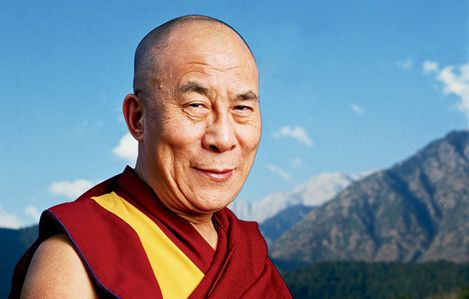After suggesting in September that the institutional role of Tibetan spiritual leader may end with his death, the 14th Dalai Lama has reiterated in a BBC interview that he could be the last incarnation of a figure that has been the highest spiritual and temporal authority in Tibetan Buddhism since the 17th century. In 2011, the Dalai Lama ceded his political power over the exiled Central Tibetan Authority to the democratically elected Sikyong (equivalent of prime minister) Lobsang Sangay, but has continued to be the highest spiritual leader in the Gelug school of Tibetan Buddhism and the de facto world ambassador of Buddhism and Tibetan autonomy. In September, Tibet scholar Robert Barnett said the Dalai Lama’s announcement of a possible end to the institution was likely intended to depoliticize the historical role of the high tulku ahead of Beijing’s probable attempt to discover a friendly successor, as has happened with other traditionally empowered reincarnates. The BBC reports:
The Dalai Lama fled to India in 1959 after Chinese troops crushed an attempted uprising in Tibet.
Beijing views the Nobel Peace Prize-winner as a “splittist”, though he now advocates a “middle way” with China, seeking autonomy but not independence for Tibet.
In a wide-ranging interview with the BBC’s Newsnight programme, during a visit to Rome for the 14th World Summit of Nobel Laureates, the 79-year-old spiritual leader conceded that he may not have a successor.
Whether another Dalai Lama came after him would depend on the circumstances after his death and was “up to the Tibetan people”, he said.
[…] The move was seen by many as a way the Dalai Lama could ensure the Tibetan community would have an elected leader in place outside the control of China.
China has said repeatedly that it will choose the next Dalai Lama.
“The Dalai Lama institution will cease one day. These man-made institutions will cease,” the Dalai Lama told the BBC. [Source]
In the BBC Newsnight interview, the Dalai Lama also spoke about the international community’s need to encourage democracy in China, saying that due to financial reasons, the UK government had been soft on China over the recently quashed Hong Kong pro-democracy protest movement. Malcolm Moore reports for the Telegraph:
The British government did not confront China over the situation in Hong Kong because it needs Chinese money, the Dalai Lama has said.
“My English friend said they say the British government’s pocket is more or less empty, so it is very important to them to have close links with China for money reasons. That is also realistic,” said the Dalai Lama, in an interview with Newsnight in Rome.
[…] “China, economically, very much wants to join the mainstream of the world economy. They are most welcome,” the Dalai Lama said.
[…] “At the same time the free world has a moral responsibility to bring China into the mainstream of democracy. China’s own people also want that … so therefore I think the whole world’s future has to be freedom and democracy. I think the free world has certain responsibilities to stand firm over democracy and the rule of law and the freedom of the press.” [Source]
The Dalai Lama also spoke about the Pope’s recent declination of a meeting, which the Catholic leader said “could cause inconveniences.” The Pope has made recent efforts to reach out to China, a country with tense relations to the Vatican.
In past months, the Dalai Lama has hinted that relations with Beijing may be thawing: he spoke about an informal dialogue between his representatives and Beijing over a pilgrimage to Wutai Shan—after which China quickly announced the impossibility of his return, and he praised President Xi Jinping as “more open-minded” than his predecessors. In a recent interview with France24, the Dalai Lama said that he believed Party conservatives to be holding Xi back from reforming government policy on Tibet:
In the interview aired on Wednesday, the exiled spiritual leader suggested hardliners in Beijing were holding President Xi Jinping back from granting genuine autonomy to the Himalayan region.
The Dalai Lama said he had been encouraged by Xi’s recent comments on the importance of Buddhism in Chinese culture. “This is something very unusual,” he said. “A communist, usually, we consider atheist.”
Asked if the remarks led him to believe Xi was ready to discuss calls for genuine autonomy, the spiritual leader said he thought there were “some indications”.
“But at the same time, among the establishment, there is a lot of hardliner thinking still there. So he himself sometimes finds it’s a difficult situation,” the Dalai Lama said. [Source]







